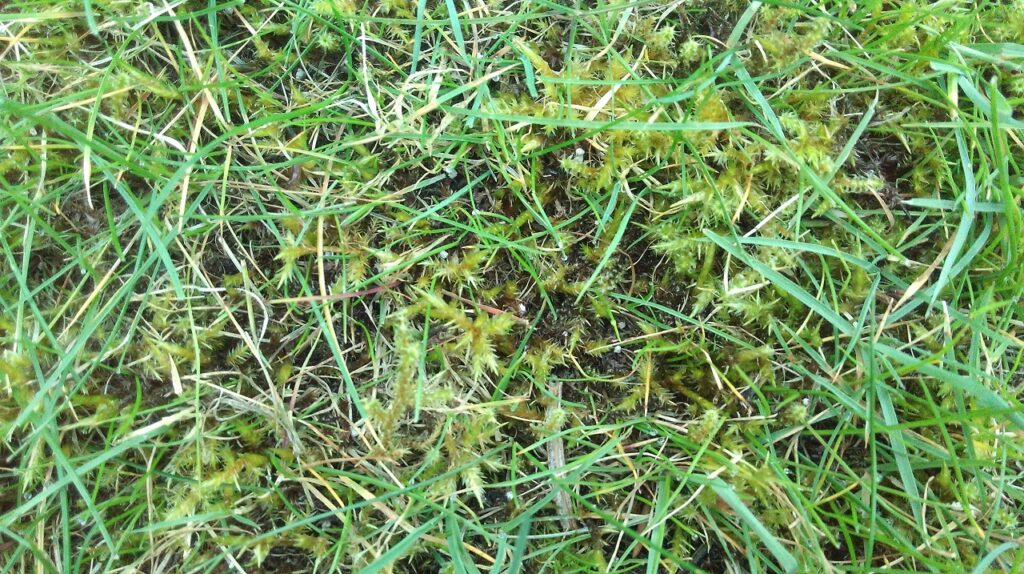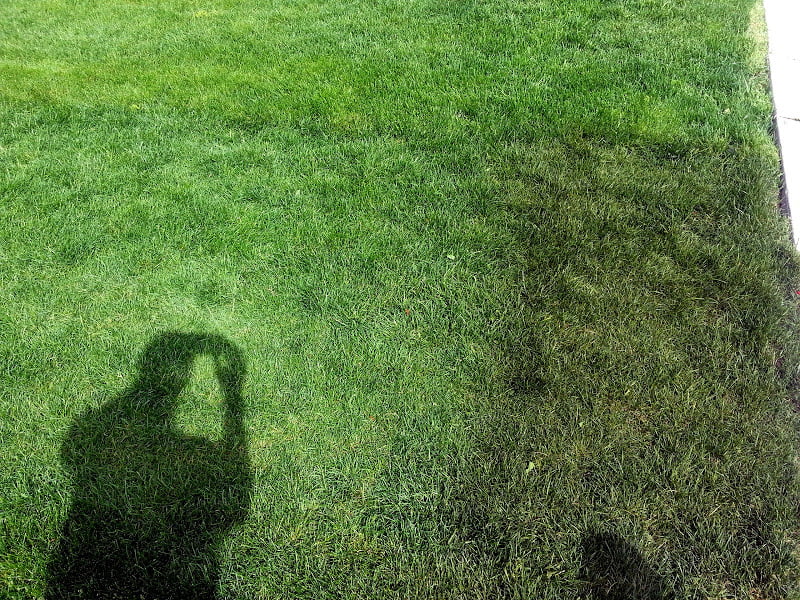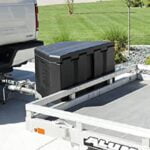
Ferrous Sulphate For Lawns – A Complete Guide
Lawn maintenance is a challenging but interesting activity. If you want to keep your lawns green and fertile, you have to use the right substance on them. This substance should not only be fertile for the soil of your lawns, but it should also keep pests and moss away. One such substance that is great for the overall health of your lawns is ferrous sulphate.
Ferrous, as you all might have known, is the chemical word for iron. Human beings need iron to remain active and healthy. Similarly, the soil in our lawns, too, needs iron to look green, fertile and pest-free. Ferrous sulphate is an excellent choice for providing a natural, dark green colour to the blades of your lawn. In this article, we will give you detailed information on the following sub-topics:
- Why ferrous sulphate is good for your lawns
- What to know about ferrous sulphate application
- Ferrous Sulphate application rate for lawns
- What is ferrous sulphate heptahydrate?
- How to apply ferrous sulphate heptahydrate?
- What to do when there is too much iron sulphate on lawns?
Why is ferrous sulphate good for your lawns?
If you have been wondering why ferrous sulphate is a popular lawn treatment solution these days, it is because it comes with a lot of advantages. If you want to keep your lawns naturally green & fresh, you have to start applying ferrous sulphate to your lawns right now. What benefits do they carry? Keep reading to know more about the same:
Builds immunity in plants – Considered a great treatment for your lawns during winters, ferrous sulphate hardens the plants. It provides excellent resistance for the plants to keep them safe from winter diseases.
Acidification of the soil – One of the most important benefits of ferrous sulphate is that it acidifies the soil. This substance contains 19% iron, and the remaining portion contains oxidized sulphur. This substance breaks down the soil microbes. The plants use these broken down materials for photosynthesis, and for synthesizing chlorophyll as well. This gives a natural green color to the blades in your lawn.
Excellent alternatives to nitrogen-based fertilizers – You might have seen many lawn owners using nitrogen-based fertilizers for maintaining and treating their lawns. While these fertilizers are good for making your lawns look fresh and green, there may be some harmful side effects in the long run.
Keeps moss at bay – Ferrous sulphate is an organic compound; therefore, it doesn’t pose any threat to the environment. However, the components of iron and sulphate help to blacken and the kill the moss in your lawns. An important point to remember is that ferrous sulphate helps to reduce moss only on a temporary basis; so, if you want to keep moss at bay, you have to resort to permanent methods to control moss.

Keeps pests at bay – The acidic nature of ferrous sulphate gives out a smell that effectively controls pests, birds, worms and other creatures. Apart from making the grass in your lawns soft and green, ferrous sulphate helps to keep it safe from infestations from these pests.
What to know about ferrous sulphate application
The chlorophyll component of ferrous sulphate makes the grass in your lawns look rich and greener than you ever imagined. According to lawn experts, ferrous sulphate is the only known lawn treatment solution to blacken and kill moss. Known to be very useful in the cold season, this substance is known to kill worms effectively, for a few weeks. When you use the liquid form of ferrous sulphate, it gets absorbed into the leaves very quickly.
While ferrous sulphate is great for the overall green appearance and health of your lawn, you have to use it with caution. Here are some points you have to keep in mind when you plan to use ferrous sulphate:
- Always apply ferrous sulphate on your lawns only in wet conditions. When you use them in dry conditions, the acidic effects of the substance can create permanent damage for your grass blades.
- Always ensure that you apply ferrous sulphate on turf only. When used on hard surfaces, it can cause hard and rough stains that are not easy to remove.
- Please take care of your garden plants when you are spraying ferrous sulphate on your lawns. Though it is an organic substance, ferrous sulphate can cause considerable staining on your plants, if you don’t take care of them.
- Ferrous sulphate can take care of pests and moss, but only temporarily. For permanent results, you have to resort to other permanent pest control and moss control remedies.
Ferrous Sulphate Application Rate For Lawns
Ferrous sulphate, as we saw in the above sections, is good for your lawns, but only when it is used in the right quantity. Overuse of this substance can cause a lot of damage to your lawns and garden plants. We will see about this in the later sections. So, what is the right application rate of ferrous sulphate for lawns?
According to lawn experts, you need to mix ferrous sulphate with water first. You should mix about 500grams of ferrous sulphate in 5 to 10 litres of water for every 100 square metres of your lawn. Then, apply about 50 to 100 grams of this mixture for every 100 square metres of lawn. This is enough to give your lawns a rich & green colour. During cool or less sunny climate conditions, this application rate will suffice. Always ensure that your lawn’s soils have proper moisture content in them before spraying ferrous sulphate.
If you are looking for specific purposes such as providing resistance to your lawns against diseases and pests or hardening the turf surface, you can gradually increase the application rate dosage from 50 to 100 grams to 150 to 200grams per 100 square metres of lawn.
Ferrous Sulphate blackens the moss automatically. Therefore, you should take extra care while applying this on your lawns. According to lawn experts, for a deep backing effect of moss and thick green colour of grass along with hardened turf, you can also use around 400 to 500grams per 100 square metres of lawn. Nevertheless, it is best to use repeat applications of 100 to 150grams of ferrous sulphate instead of using 400 to 500 grams at a stretch, for the health of your lawn.
Please remember that this application rate works well only when you apply in cool conditions. People usually use ferrous sulphate treatment for their lawns during the late autumn or winter season. Also, there should be a lot of moisture in your lawns at the time of this application. Else, ferrous sulphate can cause considerable damage to the lawns and garden plants.
What is ferrous sulphate heptahydrate?
When you suffer from a deficiency of iron, what does your doctor do? He prescribes you some iron supplements, isn’t it? Ferrous sulphate heptahydrate is nothing but an iron supplement for your lawns. You get this by-product when iron ores are treated with sulphuric acid. Apart from giving your lawns the much-needed iron content, ferrous sulphate heptahydrate also helps balance the soils’ pH levels. If you have soils with high alkaline content, you can use this water-soluble fertilizer of ferrous sulphate heptahydrate for optimal results.
When you notice the leaves of your garden plants turning yellow, it is an indication that your lawns suffer from a lack of iron. You can apply ferrous sulphate heptahydrate to treat iron chlorosis in plants. By stimulating the plants’ photosynthesis and respiration power, this compound brings vibrancy and life back to your lawns and garden plants. You can apply this deep into the soil, by adding it along with compost. Since it treats the soil well, the nutrients get absorbed quickly by the plants. It also helps to keep moss and pests at bay. Though it doesn’t deliver quick results, ferrous sulphate heptahydrate can be used to improve the look and health of your lawns in the long run.
Application of ferrous sulphate heptahydrate
Lawn experts suggest you treat your lawns and clean them up completely before using ferrous sulphate heptahydrate. This compound, which is available in a powder form, can be mixed with water, and applied on your lawns with the help of a sprayer. Since it is made up of chemicals, it can stain the surfaces, pavements and plants, if not used properly. Always wear protective gear like old clothes, masks and gloves before applying this solution, so that it doesn’t cause any skin irritations.
What to do when there is too much iron sulphate on lawns?

Though ferrous sulphate is good for lawns, you have to use it in the right proportion and right climatic conditions. Using this lawn treatment solution during extremely hot conditions can cause the grass blades to char. Your lawns will lose their beauty instantly when this happens. Always use only the recommended dosage of ferrous sulphate on your lawns. Using too much of the component will make permanent damage to the grass blades. So, please go by the instructions available on the product, and check with lawn experts before proceeding to treat your lawns with ferrous sulphate.






